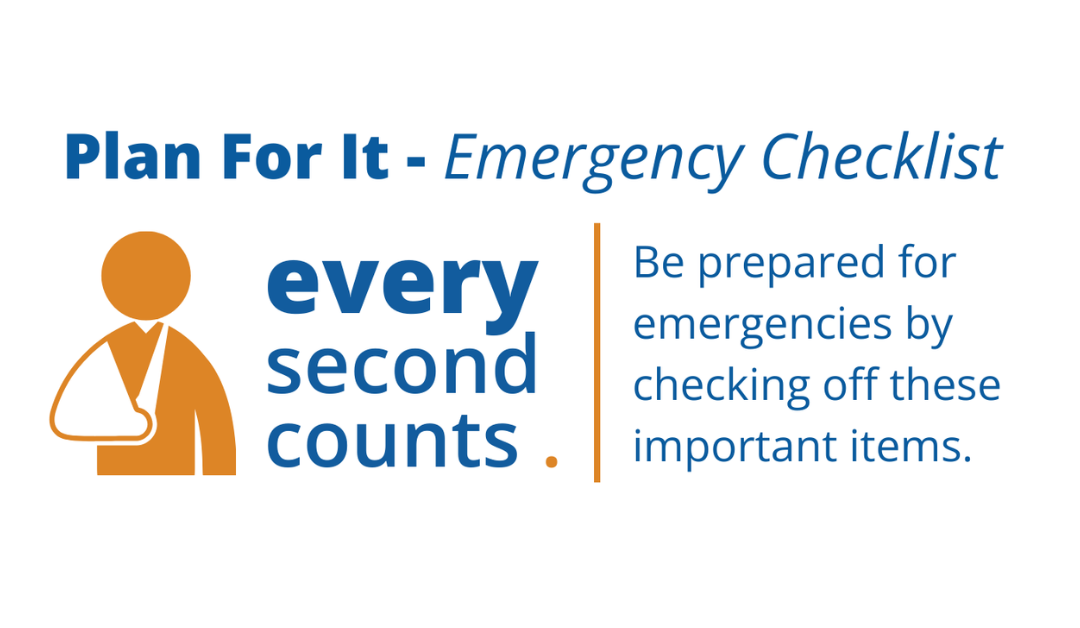In times of emergency, every second counts. Being prepared can make all the difference in getting the care you need. Here’s a checklist to help you gather the most important items and ensure that you and your loved ones are ready for any situation.
Download Plan for It-Emergency Checklist
Personal Information
The first step is to collect key personal information. This includes your birth certificate, Social Security number, and health insurance or Medicare information. Make photocopies of everything and store them in a safe, accessible place.
Photo Identification
In case you need to leave in a hurry without your wallet, it’s crucial to have a copy of your photo ID. This can be a driver’s license, passport, or any government-issued identification.
Medical History
If you have specific health conditions, such as diabetes or cardiovascular disease, create a list of these concerns. It can help healthcare providers deliver more accurate and timely care.
List of Allergies
Document any known allergies to medications, foods, or materials like latex. Be sure to note the type of reaction and any interventions used, such as carrying an EpiPen®. Keep this information handy in case of emergency.
Emergency Contacts
Prepare a list of key contacts, including family and close friends, with their phone numbers. Choose someone to act as your primary contact in case you are unable to communicate yourself.
Medications
Make a list of all prescription medications you take, along with dosages and instructions. Don’t forget to include over the counter (OTC) medications and herbal supplements, as they can sometimes interact with prescriptions.
List of Medical Providers
Write down the names, phone numbers, and specialties of all your healthcare providers. This might include your general practitioner as well as any specialists, such as your cardiologist or pulmonologist.
Legal Documents
Ensure you have copies of any important legal documents, such as a living will, healthcare proxy, advance directives, and Do Not Resuscitate (DNR) orders, if applicable.
Essential Personal Items
In addition to documentation, remember to pack essentials like glasses, hearing aids, and small comfort items such as a blanket to help you stay comfortable in case of an extended stay.
Keep Everything Organized
It’s important to keep all these items in one organized place, whether in a folder or a binder. This way, you’ll be able to access them quickly when every moment matters.
Remember: You are encouraged to bring only essential items. All other valuables should be left at home, as the hospital cannot be held responsible for lost or stolen belongings.
Take a moment to plan ahead, because when the unexpected happens, being prepared will give you peace of mind.


